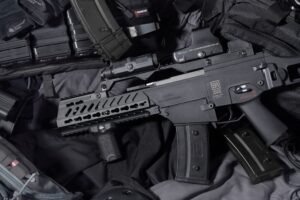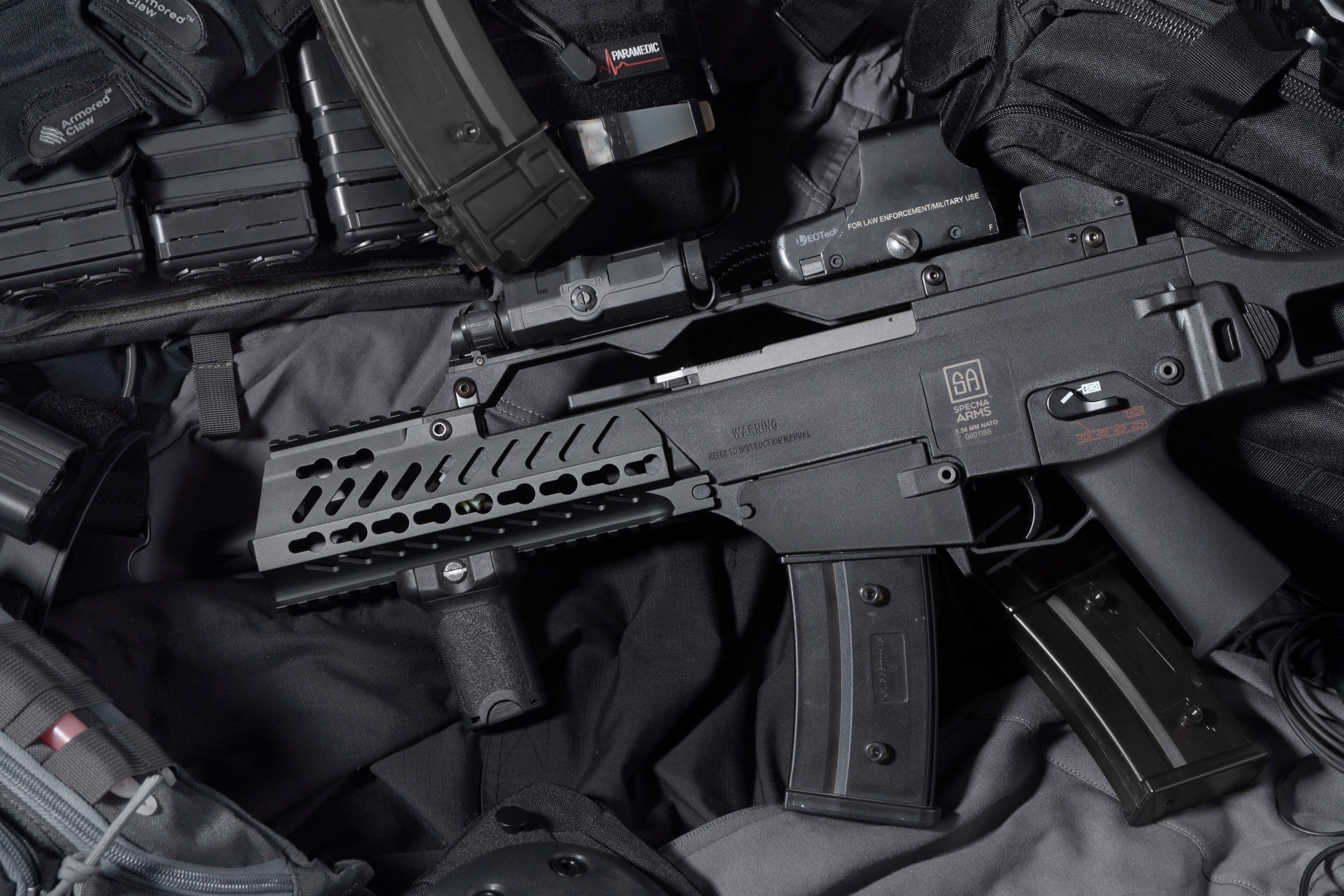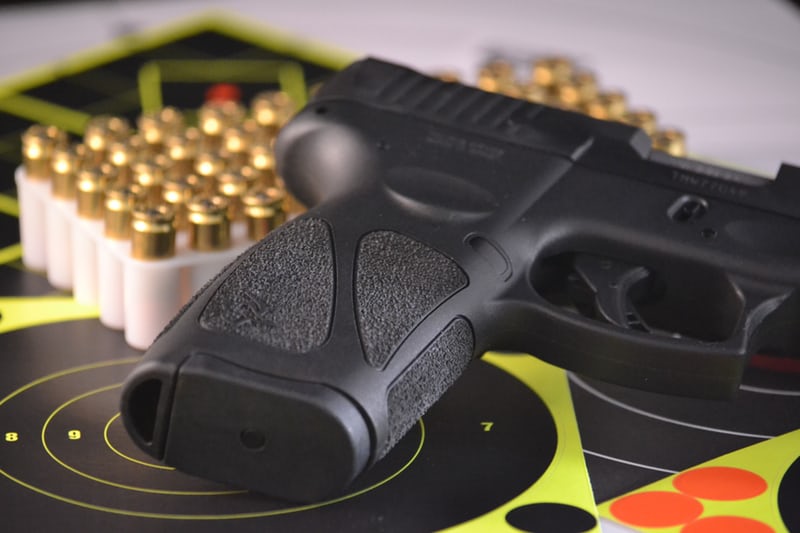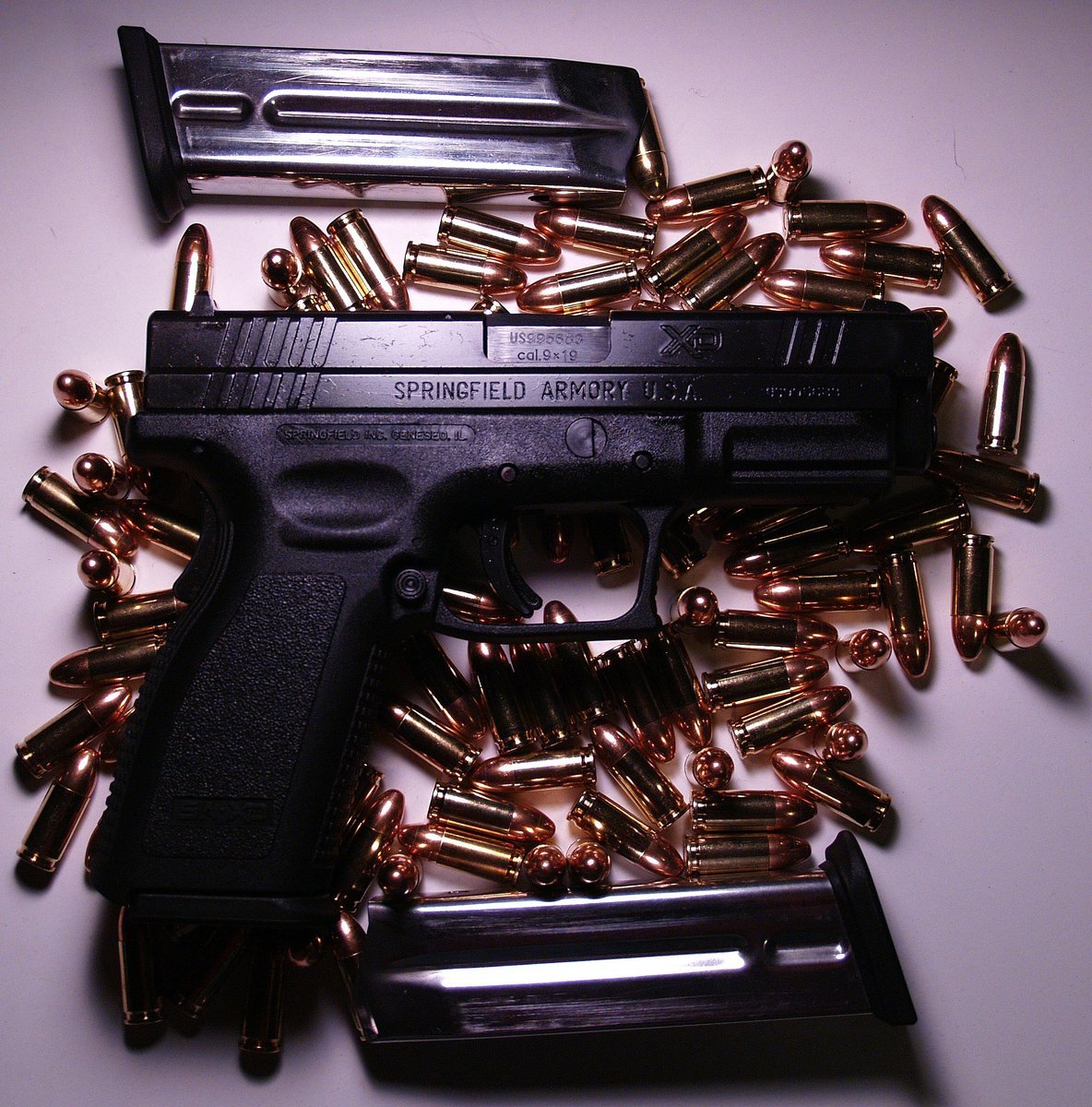Anatomy of a Gun Trafficking Operation
 I have posted several blogs regarding the legal considerations surrounding firearms. The first post related to the Protection of Lawful Commerce in Arms Act, 15 U.S.C. § 7901 (2005), et seq., (“PLCAA”), which prohibits lawsuits against gun manufacturers and dealers, except under very limited circumstances. I also wrote about the surviving families of the Sandy Hook massacre’s lawsuit against Remington Arms Co., under PLCAA, based upon violation of a state consumer protection law. More recently, I wrote about the City of Kansas City’s lawsuit against a gun manufacturer, Jiménez Arms, and several gun dealers arising out of a gun trafficking ring. This blog explores that trafficking ring, how it worked, and what damage it caused before it collapsed with the arrest of the main perpetrator, James Samuels, on October 4, 2018.
I have posted several blogs regarding the legal considerations surrounding firearms. The first post related to the Protection of Lawful Commerce in Arms Act, 15 U.S.C. § 7901 (2005), et seq., (“PLCAA”), which prohibits lawsuits against gun manufacturers and dealers, except under very limited circumstances. I also wrote about the surviving families of the Sandy Hook massacre’s lawsuit against Remington Arms Co., under PLCAA, based upon violation of a state consumer protection law. More recently, I wrote about the City of Kansas City’s lawsuit against a gun manufacturer, Jiménez Arms, and several gun dealers arising out of a gun trafficking ring. This blog explores that trafficking ring, how it worked, and what damage it caused before it collapsed with the arrest of the main perpetrator, James Samuels, on October 4, 2018.
Samuels, a captain with the Kansas City fire department illegally traded in arms from 2013 to 2018. Domestic gun traffickers usually sell to two types of clients. First, they sell firearms to “prohibited persons,” which are individuals restricted from owning or possession a firearm. Under federal law, anyone convicted of a felony is permanently banned from owning or possessing a gun. This leads to the second reason gun traffickers exist. The guns they sell will not be traceable to the purchaser, as the transaction is not recorded. Much of the time, the gun has been reported stolen, so it has no owner. A felon that wants to have a firearm can buy that gun from a trafficker, and when if it is used in the commission of crime, it can be disposed of without concern of being identified through its registration.
On November 22, 2013, Samuels placed a call to Jiménez Arms, a gun manufacturer with the reputation for building very cheap pistols, ideal for disposal after committing a crime. He told the company contact that he was a firefighter but worked part-time at Conceal & Carry (C&C), a gun dealer in Kansas City. The manufacturer received confirmation from C&C that Samuels in-fact worked for the dealer. As a consequence, it gave Samuels permission to purchase guns.
Samuels placed his first order from Jiménez for 6 pistols, deliverable to C&C. He paid $706 for the guns, charging them to his personal credit card. Upon receipt, he sold pistols to co-conspirator Iesha Boles, who subsequently reported the weapons stolen. This ended the lawful chain of title. Less than two months later, he ordered another seven pistols and again transferred guns to Boles. She in-turn, again reported the weapons stolen.
Over the course of three months, Samuels bought 17 handguns from Jimenez, all of which were shipped to C&C. However, C&C held no records of their purchase or resale. This volume of weapons, sold to one person who is not licensed, should have been a red flag for the manufacturer. Gun dealers usually purchase their inventory from wholesalers. An individual, purchasing in bulk from a manufacturer, without a license, and on his personal credit card, where a legitimate dealer would purchase through a wholesaler, should have raised alarms with Jiménez.
One year after the three-month unlicensed dealing spree, Samuels purchased an additional eight pistols one his personal credit card. However, this time, the pistols were delivered to his home address. Samuels told the manufacturer that C&C had relocated its business, giving his street address. Around the same time, C&C stopped operations and closed up shop. To avoid detection, on his next order—January 28, 2015—Samuels claimed to have changed dealers, now working for Blue Steel Guns & Ammo.
Jiménez called to verify his employment, where the store employee stated that Samuels already had buyers lined up for the firearms. Despite a statement that sounded almost directly that Samuels was dealing guns without a license, Jiménez delivered five more pistols, this time to the Blue Steel address. This shipment was returned to the manufacturer, as an employee at Blue Steel recognized what was happening—this employee then called Jiménez and made clear that Samuels was not authorized to make that sort of firearms purchase.
With the manufacturer direct channel shut down, Samuels began using other methods to circumvent gun dealing laws. Samuels starting transacting through a different gun dealer, CR Sales. A typical transaction went down as follows: Samuels orders a pistol from an online dealer—typically GunBroker.com, deliverable to CR Sales, another local gun dealer. CR Sales would receive the pistol, which it would transfer into Samuels name. He subsequently transferred the weapon to Boles, who again reported the gun stolen.
This process continued until the Bureau of Alcohol Tobacco and Firearms (“ATF”) contacted CR Sales, wanting to discuss Samuels purchase and sale history. No legal action was taken. However, Samuels was forced to move on to another dealer.
In 2017, Samuels took the same scheme to Mission Works Gunworks (“MWG”). Samuels was able to purchase and sell 12 more pistols before the ATF called regarding suspicious activity at MWG. Only then did the ATF begin investigating Samuels. Through the use of either an undercover agent or an informant, the ATF conducted several controlled buys to develop a case against Samuels.
Over a six-year period, Samuels pumped hundreds of untraceable guns into Kansas City. Some have been recovered, but the vast majority remain in circulation. One gun was recovered in Chicago, seized by police along with cocaine during the execution of a search warrant. The pistol was fully loaded with 13 rounds at the time of its seizure. Police recovered another pistol while serving an order of protection upon a man for threatened to kill his girlfriend. One of the guns reported stolen by Boles was later found in the possession of a felon.
The U.S. Attorney’s Office for the Western District of Missouri charged Samuels with 14 counts related to his trafficking in firearms:
- Six counts of selling a firearm and ammunition to a prohibited person;
- Three counts of knowingly transferring a firearm for use in a violent crime;
- Two counts of possessing an unregistered firearm;
- Conspiracy to make false statements during the purchase of firearms;
- Engaging in the business of dealing firearms without a license; and
- Possessing a stolen firearm.
For her part Boles was similarly charged with firearms trafficking related crimes but took a deal and pled guilty to conspiracy to make false statements during the purchase of firearms. She is currently awaiting sentencing.
Benjamin Bryant, J.D.
Neumann Law Group





